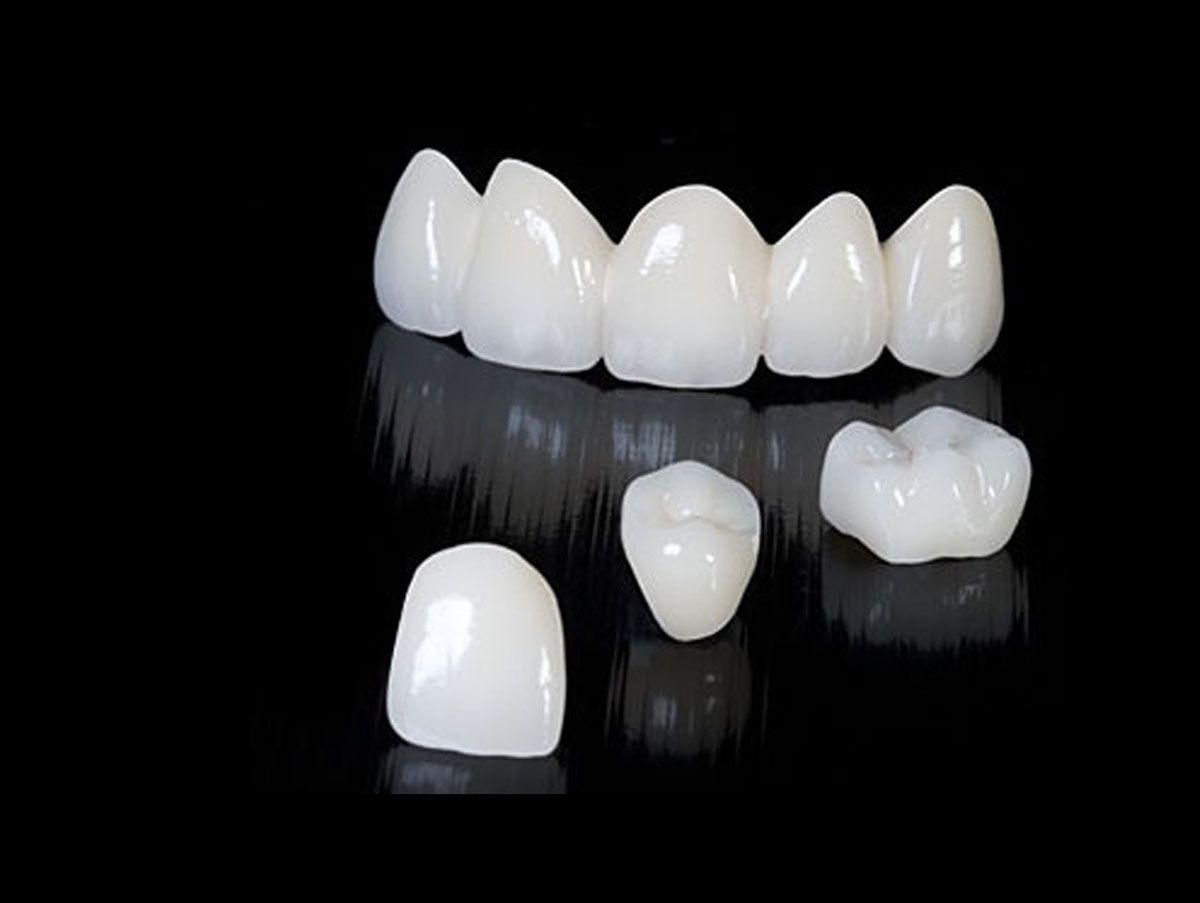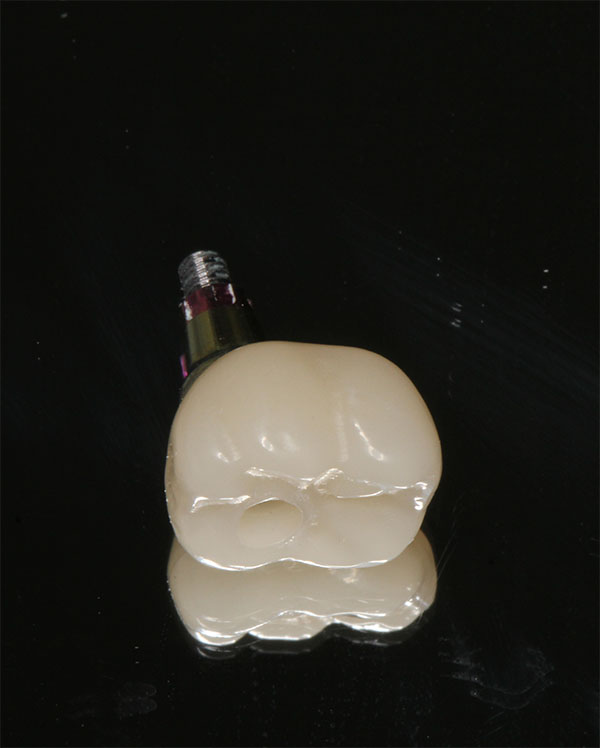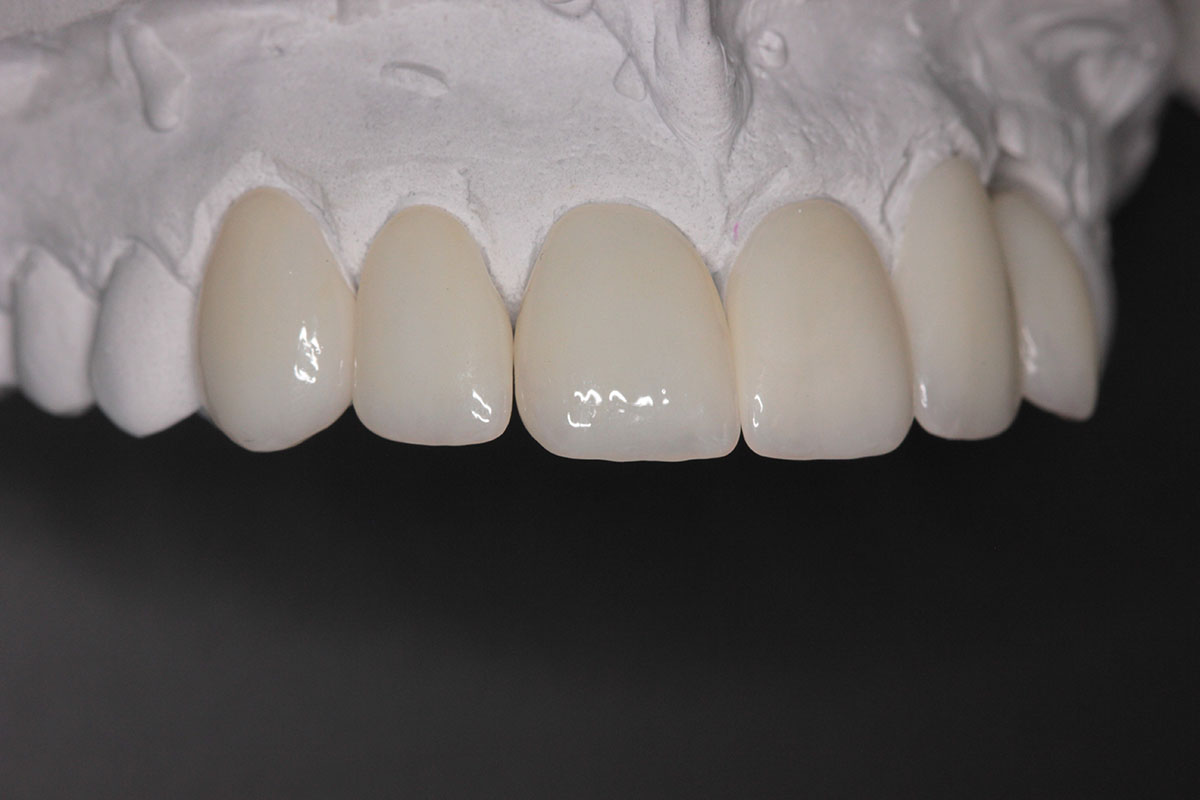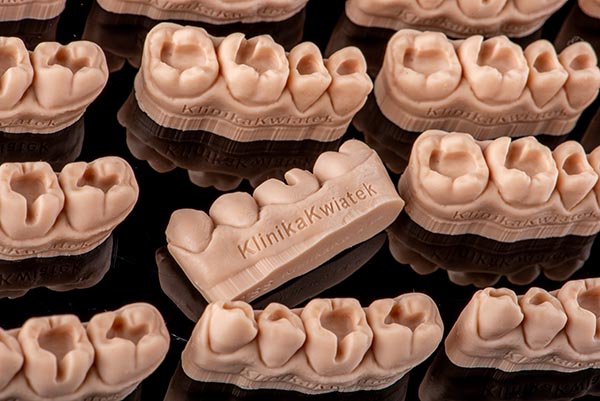Dental crowns

Dental Crowns Poznań
Dental crowns are an innovative prosthetic solution that allows for the restoration of the natural appearance of teeth. Thanks to advanced technologies and high-quality materials, dental crowns are durable, resilient, and perfectly mimic natural teeth.
At the Kwiatek Clinic in Poznan, we offer a wide selection of dental crowns, including porcelain and full-ceramic crowns, which are tailored to the individual needs of each Patient. We invite you to familiarize yourself with our offer and take advantage of professional services to enjoy a beautiful and healthy smile every day.
What are dental crowns?
A dental crown is a type of prosthetic restoration that is placed on ground teeth or implants. Their task is to restore the natural appearance and function of the teeth, which allows for maintaining the aesthetic appearance of the oral cavity and improving user comfort. Prosthetic crowns are especially recommended for teeth that have discoloration, damaged teeth, or teeth after root canal treatment.
At Kwiatek Clinic in Poznań, we offer full-ceramic crowns, including porcelain ones, which are characterized by high durability and longevity. Each crown is tailored to the individual needs of the Patient.

Types of prosthetic crowns
In today's dentistry, several key types of dental crowns can be distinguished, each characterized by unique properties and specific applications. One of the main criteria for division is the type of material from which they are made.
In this regard, the following are distinguished:
- Porcelain crowns on a zirconia base - these crowns are made of porcelain on a dedicated base, which ensures their high durability and longevity. Thanks to the use of porcelain in the crown, it gains an aesthetic appearance resembling natural dentition; They are perfect for Patients looking for durable and aesthetic solutions;
- Full ceramic crowns - these crowns are entirely made of ceramics in the color of the Patient's natural enamel. They are an excellent solution for people who want to achieve a natural look of teeth. This type of crown does not have a base, which eliminates the risk of allergic reactions;
- Dental bridges - are used in people with missing teeth. The dental bridge consists of prosthetic crowns placed on adjacent teeth or implants (pillars), while between them there is a crown supplementing the tooth deficiency (bridge span). This allows for the restoration of the natural appearance of the dentition.

Dental Crowns - Why are they worth it?
Prosthetic crowns are an excellent solution for many reasons. Firstly, their natural appearance. Porcelain and full-ceramic crowns are designed to best replicate the look of natural teeth. Another aspect is durability and resilience, due to the use of high-quality materials that ensure the longevity of the crowns.
Most importantly, crowns protect teeth from further damage and provide high user comfort.
Who are dental crowns for?
Dental crowns are suitable for patients who:
- Have damaged or broken teeth - crowns can restore full functionality and aesthetics of such teeth;
- Have undergone root canal treatment - after root canal treatment, a dental crown protects the treated tooth from further damage - this is the most recommended form of tooth restoration after endodontic treatment;
- Have implants - crowns are used to rebuild teeth on implants;
- Want to improve the aesthetics of their smile - porcelain and full-ceramic crowns can significantly improve the appearance of teeth.
What does the procedure of placing dental crowns look like?
During the first visit, the dentist assesses the condition of the tooth and performs necessary examinations. Then, the natural tooth is ground to prepare it for the crown placement. After grinding the tooth, the dentist performs a digital scan (or possibly takes an impression), which is then sent to the prosthetic laboratory. The waiting time for the crown to be made is usually about 2 weeks. During this time, the dentist places a temporary crown, which protects the tooth until the next visit.
After the proper crown has been made in the prosthetic laboratory, the dentist tries on the prosthetic work and assesses its fit, color, and alignment in the arch. After the patient has accepted the appearance of the crown, the dentist permanently places the crown on the ground tooth or implant.

How to take care of prosthetic crowns?
Crowns and bridges retain their color and do not discolor, but this does not mean that they do not require care. Bacterial plaque also accumulates on the surface of crowns - neglecting proper oral hygiene can lead to serious consequences, such as gum inflammation, tooth decay of adjacent or pillar teeth or periodontitis.
How to take care of oral hygiene? The best solution is to regularly clean the crowns along with the rest of the dentition. The first step is cleaning the interdental spaces. Dental floss can be used for this. Then it is worth using a dental irrigator, and after it a toothbrush, in order to clean the crowns from every side.
Regular check-ups at the dental office and professional cleanings are also very important.
